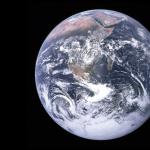This year, more than 100 cities, from Petropavlovsk-Kamchatsky to Kaliningrad, joined the event, which is being held in Russia for the ninth time.
This year, Earth Hour was overshadowed by the tragedy that occurred in Rostov-on-Don. WWF Russia, together with other organizers of the event, decided to cancel all festive events in Moscow, including a concert on Tverskaya Square, a performance by the Ministry of Defense orchestra, a light show, flash mobs and a bike ride.
The World Wildlife Fund also appealed to the organizers of events in other Russian cities with a request to exclude all entertainment elements from the event programs, and to support the action only by turning off the lights and illumination of buildings. Including in St. Petersburg, the race from the Tauride Garden and the event on the spit of Vasilievsky Island were canceled, in Murmansk - an event at the city skating rink, in Krasnodar - a photo quest, etc.
A press briefing was held on Red Square in Moscow with the participation of the director of WWF Russia Igor Chestin, Minister of Natural Resources and Environment Sergei Donskoy and the head of the Department of Natural Resources and Environmental Protection Anton Kulbachevsky. All speakers expressed sincere condolences to the families and friends of the victims. The protesters lit candles.
In Moscow at 20:30 the lights were “turned off” using a symbolic switch installed on Tverskaya Square. The lights went out in the houses of the capital's residents, and the lighting of more than 1,500 buildings was turned off, including the Moscow Kremlin, “Stalinist” high-rises, the Cathedral of Christ the Savior, Luzhniki, the Bolshoi Theater, the buildings of the State Duma and the Federation Council, most buildings on the Garden Ring, New Arbat , Tverskaya street. For the first time, the lights of the Moscow City towers and the Mail.ru Group building on Leningradsky Prospekt went out.
Although the holiday events were cancelled, those who wished could join in the action by turning off the lights in their homes. Told about this Sergey Donskoy: « When we turn off the lights, we remember environmental problems. This is the time to pay attention to environmental issues... I encourage everyone to participate in Earth Hour».
Igor Chestin, in turn, noted: “ Earth Hour is, first of all, a reason to think about the fact that every year we have fewer and fewer resources. This year, Earth Hour is dedicated to a topic that is very close to all of us - the ecological footprint. The impact we as residents have on the environment».
You could also take part in Earth Hour using the website WWF.RU/60. It is still possible to mark yourself on the interactive Earth Hour map. At the moment more 120 thousand people supported the action on the website.
WWF Russia will sum up the final results of the action on Monday, March 21. It will become known how many people took part in it in Russia. In addition, the city whose residents were most actively marked on the map will be selected. This city will receive the title of capital of Earth Hour 2016.
Earth Hour 2016 around the world
The number of countries participating in the environmental action in 2016 increased to 178, which is 6 more than last year. At least 2 billion people in the world participate in the action.
The world has once again turned off the illumination of such famous landmarks as London's Big Ben, the Eiffel Tower in Paris, the Sagrada Familia in Barcelona, the Sydney Opera House, the Blue Mosque in Istanbul, the Acropolis of Athens, St. Peter's Basilica in the Vatican, the Empire State building and Times Square in New York, Niagara Falls, Los Angeles International Airport, and many others.
“Earth Hour” is an international environmental campaign initiated by WWF in 2007, calling on people around the world to turn off lights and household electrical appliances for one hour as a sign of concern for the future of the planet. Official website of the promotion -
According to scientists, humans have lived on Earth for several tens of thousands of years. From year to year, the violent activity of homosapiens caused great damage to the planet. People developed, technology moved forward, and therefore the problems associated with the pollution of the planet only increased. But smart humanity once said to itself: “Stop!”, and decided that over many years of thousand-year history we could find just an hour a year to try to save the Earth. Thus, a new holiday was born, or rather the global campaign World Wide Funf For Nature.
Let's synchronize watches
Every person will be able to think about their behavior on March 30, 2019 from half past eight to half past ten in the evening local time. The essence of the action is simple: everyone who participates in it must turn off all electrical appliances and lights for just one hour. Spending an entire hour of the Earth in complete darkness, without the Internet, TV and smartphone will be unbearably difficult, but the planet needs our sacrifices. There have been cases where people who turned off the light for just an hour were so imbued with the pristine atmosphere, charged with peace and quiet, that they refused to turn on the light after an hour. When Earth Hour had ended all over the world, they continued to sit in the dark.
Goal for the hour
Like all events held under the auspices of the World Wildlife Organization, environmentalists hope to attract as much attention as possible to the pressing problems of our planet. Show that humanity, when faced with one common problem, can rally around it and solve it, if not completely, then partially. This is what the organizers of the World Wide Fund action are calling for and what thousands of people who joined the action are counting on. Every year the number of active participants is growing, perhaps it’s just a matter of flash mobs that are fashionable today, or maybe it’s true that humanity has become a little more responsible over the past decades. But the matter cannot be solved in one hour, especially on the scale of the entire planet, so the Earth Hour campaign is, rather, a symbol of our faith and struggle for the future of the planet, and therefore for our future too.
Sad statistics
According to scientists, human impact on the environment has increased markedly since 2003. Even then, environmentalists sounded the alarm, because by maintaining this harmful trend, by 2050 the planet would turn into one big garbage dump, which would completely lack all the resources necessary for living organisms. And then humanity will have to celebrate the Earth Hour of 2051 on some neighboring planet. The only thing left to do is to find a planet suitable for life and invent a way to transport a multi-billion population. Or maybe it would be easier to clean up your home and not leave your native land?
Promotion statistics
For the first time, Australians, concerned about environmental problems, dared to turn off the electricity. Earth Hour was accompanied by a widespread but voluntary blackout in Sydney, the country's major metropolitan area. The electro-flash mob was liked by other advanced citizens of the world, and the following year more than 100 million people in 35 countries around the world joined the Australians. The number of participants in the event is growing every year. Just think, in 2011 it was supported by almost 2 billion people from 135 countries. It’s scary to think how many citizens will voluntarily cut off their electricity during Earth Hour 2019.
Russia without light
Our country, without even knowing it, periodically participated and is participating in these actions, not only in March, but also whenever there is a power outage here or there. But this is all unofficially, so to speak, on a voluntary basis and at the request of the country’s citizens concerned about the fate of the planet. The official Earth Day took place in our country only in 2009, when the action was supported by 20 cities, and the total number of people who turned off their lights in 2011 was 11 million people. Last year, 2017, the campaign was supported by more than 150 cities.
Strictly on a voluntary basis
Earth Hour involves not only conscious citizens who care about the fate of the planet, but also large organizations. The authorities of various cities turn off the street lighting of buildings during the protest, but leave city lighting on. Still, safety precautions must be observed, so the lighting must work regardless of the goodwill of the participants. Basically, during the event, the lights on the most famous landmarks of a particular city are turned off. In 2011, the Roman Colosseum, the Sydney Opera House, the Eiffel Tower, the Acropolis in Athens and the Empire State Building in New York were left without electricity. Luzhniki, Moscow State University, Shabolovskaya Tower and about 70 other different capital objects were responsible for the Russian part. The cultural capital also did not lag behind Moscow. In St. Petersburg, the famous bridges, the Winter Palace, Palace Square and other famous attractions were plunged into darkness.
When is Earth Hour in 2019
At the same time, various events, an environmental flash mob and a bike ride will be held in Moscow, according to the official portal of the mayor and government of Moscow.
To become a participant in the flash mob, you need to come to the monument to Yuri Dolgoruky, located opposite the city hall building on the street. Tverskaya, 13.
The main participants in the action will be the schools that became winners and laureates of the “Ecological Flash Mob - 2017” competition. The current “Earth Hour” will be held under the slogan “Change yourself, not the planet.”
The main theme of the event will be the environmental responsibility of every person living on the planet.
Let us remind you that Earth Hour is an event of international scale. As part of this campaign, the World Wildlife Fund (WWF) calls for turning off lights and household electrical appliances for just 60 minutes as a sign of concern for the future of our planet.
In addition, the lights of all the most famous buildings and monuments around the world will be turned off for one hour.
This year, international Earth Hour will take place for the tenth time. The action is carried out in order to arouse interest in the problem of climate change and the energy unification of humanity.
This event was first organized in 2007 in Australia and the following year received worldwide support.
In 2009, the action became the most widespread in the history of mankind; more than a billion people on the planet took part in it.
In Russia, Earth Hour has been held since 2009. In Moscow, just a few years ago, the lighting was turned off on only 70-80 buildings; in 2014, their number reached about 400, and in 2016 - about 800.
Last year, the events in the capital culminated in Red Square. Exactly at 20.30, the lighting of the architectural ensemble of the Kremlin, St. Basil's Cathedral, GUM, Manege, Cathedral of Christ the Savior, buildings of the Russian government and the Moscow government, Moscow State University and other high-rise buildings was turned off.
Earth Hour was supported by residents of more than 120 Russian cities. Up to 20 million people took part in the action.
Every year at the end of March, the Earth Hour event takes place around the world - for 60 minutes, decorative lighting in cities goes out, and people turn off lights and household electrical appliances. For 10 years now, the World Wildlife Fund (WWF) has been drawing the attention of the world's inhabitants to the problem of climate change.
Today, Earth Hour is the largest environmental event on the planet. According to WWF, more than 2 billion people around the world, more than 170 countries and about 7 thousand cities take part in it. In 2016, Earth Hour took place on Saturday, March 19th.
Meanwhile, you can help the planet not only once a year, but every day. Useful habits that preserve the environment are in a TASS special project.
Save energy
It is no secret that mainly non-renewable resources are used to generate energy - coal, gas and oil - while carbon dioxide, which is a greenhouse gas, enters the atmosphere (causing the greenhouse effect - an increase in the temperature of the lower layers of the planet's atmosphere). Every year, humanity consumes more and more energy, polluting the environment even more. The easiest way to save the environment is to use energy wisely. A few simple steps will help residents of the metropolis with this:
Use energy-saving and LED lamps. They consume less energy and can last up to 20 years.
Turn off the lights in the room when you leave it.
Turn off your computer and do not leave it in sleep mode for a long time.
Remember to unplug chargers from the outlet. They consume electricity even when not used for their intended purpose.
Interesting fact
LED light bulbs (light-emitting diode) consume 85% less energy than incandescent lamps, and 50% less electricity than fluorescent and energy-saving lamps. They do not heat up and do not require replacement for a long time, and therefore they can be used in places where the light is on constantly.
The service life of LED lamps is 50 times longer than that of conventional lamps. In addition, LEDs turn on instantly and produce better, continuous light in which colors appear natural and are less irritating to the eyes.
Reduce exhaust emissions
Exhaust gases are products of oxidation and incomplete combustion of hydrocarbon fuels. Their emissions are the main reason for exceeding permissible concentrations of toxic substances and carcinogens in the atmosphere of large cities and the formation of smog, which is a common cause of poisoning in confined spaces.
Exhaust gases are also one of the reasons for the increased greenhouse effect.
To get around the city, use public transport or a bicycle, and walk more.
If you get behind the wheel, try to maintain a constant speed limit. When accelerating and braking, more fuel is consumed than when driving at a constant speed.
Interesting fact
The authorities of megacities are trying to reduce the harm from exhaust gases. In particular, the use of electric vehicles is being introduced in some large cities. The Moscow authorities are taking similar steps.
As reported on the website of the capital's mayor's office, by the end of 2016, 200 electric charging stations for electric vehicles will operate in the capital, and 55 such devices will be installed by May 1.
Charging stations increase the economic efficiency and reliability of energy supply for the transport complex. “They also help increase the number of environmentally friendly electric vehicles on the city streets,” said Deputy Mayor of Moscow Maxim Liksutov.
The first charging station for electric vehicles opened in one of the parking lots in the city center in 2015.
Save water
In preventing an environmental disaster, this method plays no less a role than energy saving. Using water every day, we usually don’t think about how much is left on the planet and whether there is enough for everyone. Meanwhile, more than a billion people suffer from water shortages around the world. Save water:
Take a shower, not a bath. Install an economical shower head.
Turn off the water while brushing your teeth.
To wash large quantities of dishes, use a dishwasher - this way, significantly less water is wasted.
Interesting fact
Dentists advise spending at least two minutes on high-quality teeth cleaning.
If you do not turn off the water tap during the process, then more than 10 liters of water pour out of it every minute.
The total consumption per day is at least 40, per month - 1200 liters, and per year - 14,600 liters.
For comparison, that's over 70 filled bathtubs.
Save paper
Remember that this is how you save trees.
In the printer settings, select duplex printing. According to some reports, 30 packs of office paper require one tree.
Read e-books.
In the office, use whiteboards that you can write on with a marker instead of sticky notes.
Interesting fact
According to environmentalists, about ten thousand hectares of forest are cut down in Russia every year for the production of toilet paper.
This problem can be solved very easily.
Just at the supermarket, choose paper that is made from waste paper.
The composition is written on the packaging.
Consume wisely
Waste in landfills is not used in any way, while some materials can be sent for recycling or not thrown away at all. That's why:
Buy as much food and things as you really need. Choose local and seasonal products with minimal packaging. Extra packaging means extra waste.
Do not use disposable plastic bags - in nature they can take more than 200 years to decompose. Replace them with reusable bags.
Don't throw away old things. Give them to people in need at shelters and relief funds.
Hand over used batteries to special collection points. They contain many heavy metals, which, when released into the soil, poison it.
Interesting fact
In Russia there is no centralized system for separate waste collection. Meanwhile, in many cities there are corresponding collection points. In particular, the Moscow authorities have launched an interactive map of separate waste collection points and recyclables collection points.
According to the Moscow City Hall website, on the online map you can find collection points for aluminum cans, energy-saving light bulbs and batteries, waste paper, plastic, glass, electronic equipment, tires, ferrous and non-ferrous metals.
The capital has the largest number of collection points for energy-saving lamps - 1042 points.
We worked on a special project
((role.role)): ((role.fio))
Photo: AP Photo/Susan Montoya Bryan, AP Photo/Rajesh Kumar Singh, Ethan Miller/Getty Images, C Christopher Furlong/Getty Images, E PA/KAUSHIK SARKHEL, AP Photo/Andre Penner, Alexander Ryumin/TASS,Sascha Schuermann/Getty Images,Zurab Javakhadze/TASS, George Frey/Getty Images, EPA/SEBASTIAN KAHNERT
Earth Hour 2016: meaning
For eight years in a row, people around the world have been taking part in an important event - an event called Earth Hour. It has become an annual event and is held on the last Saturday of March. On this day, all conscious people turn off the lights for one hour, regardless of where they are: at home, at school or at work. During Earth Hour, it is important not only to turn off the lights, but also to turn off other electrical appliances (except elevators and sources of life support), of which there are plenty in the modern world. Thus, Earth Hour draws people's attention to the environment.
Immediately after the end of the first Earth Hour event, interest in the topic of the environment increased noticeably, reducing the degree of indifference among the population of our planet. People have become interested in what their daily actions and habits could lead to global disasters in the future.
.jpg)
Earth Hour 2016: scale
Earth Hour was first organized by the World Wildlife Fund in Australia in 2007, when 2.2 million homes and organizations deliberately turned off their lights for one hour. A year later, this event became an international environmental initiative, which was joined by more than 100,000,000 people in 35 countries. To attract more people to the Earth Hour campaign, the lights were turned off at hundreds of monuments of world significance. Among them were the Egyptian Pyramids, Big Ben in London, the Statue of Christ the Redeemer in Rio de Janeiro and many others.
.jpg)
Earth Hour in 2016: what date?
The Earth Hour 2016 event will take place on March 19 at 20:30. Anyone who wants to join Earth Hour can turn off the lights for one hour as a sign of unity and concern for the future of the planet.




















